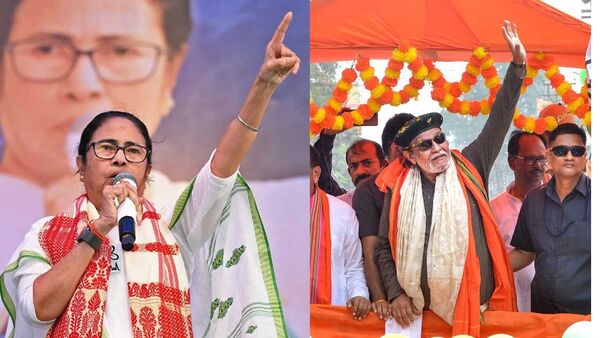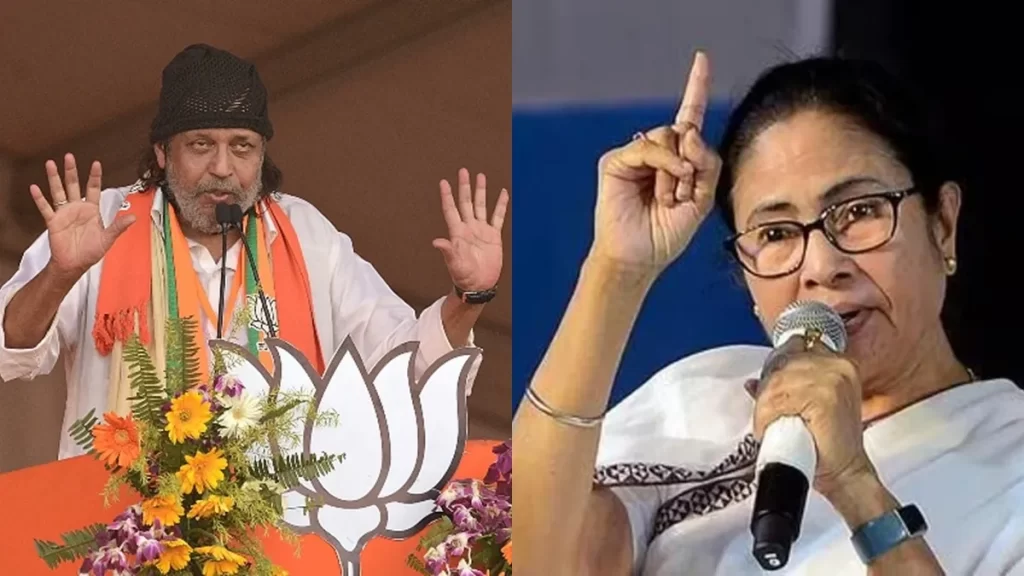Mamata Banerjee, the Chief Minister of West Bengal, has stirred controversy by referring to actor Mithun Chakraborty as a “traitor from Bengal.” The statement came amidst political tensions in the state, with Chakraborty’s recent alignment with the Bharatiya Janata Party (BJP), the main opposition party in West Bengal.
Chakraborty, a popular actor known for his roles in Bollywood and Bengali cinema, has been active in politics intermittently over the years. In 2014, he was appointed as a Member of Parliament by the Trinamool Congress (TMC), Banerjee’s party, but resigned from the Rajya Sabha in 2016 citing health reasons.

Source:- India today
However, in 2021, Chakraborty joined the BJP in a high-profile event attended by several senior party leaders. His decision to align with the BJP was seen as a significant development in West Bengal’s political landscape, particularly given his popularity among the masses.
Source:- news 18
Banerjee’s characterization of Chakraborty as a “traitor from Bengal” reflects the acrimonious nature of political discourse in the state. The use of such strong language underscores the deep divisions between the TMC and the BJP, both of which have been engaged in a fierce battle for power.
Chakraborty’s switch to the BJP is emblematic of a broader trend of political defections and realignments that have characterized Indian politics in recent years. His entry into the BJP fold was celebrated by party supporters but drew criticism from his erstwhile colleagues in the TMC.
The fallout from Banerjee’s statement is likely to further intensify the already charged political atmosphere in West Bengal. The state, known for its history of political activism and fervor, continues to be a battleground for competing ideologies and interests.
In the midst of these tensions, the fate of individuals like Mithun Chakraborty, who straddle the worlds of entertainment and politics, remains uncertain. Their actions and allegiances are subject to intense scrutiny and often become symbolic of larger political narratives and power struggles.
Share your views in the comments

